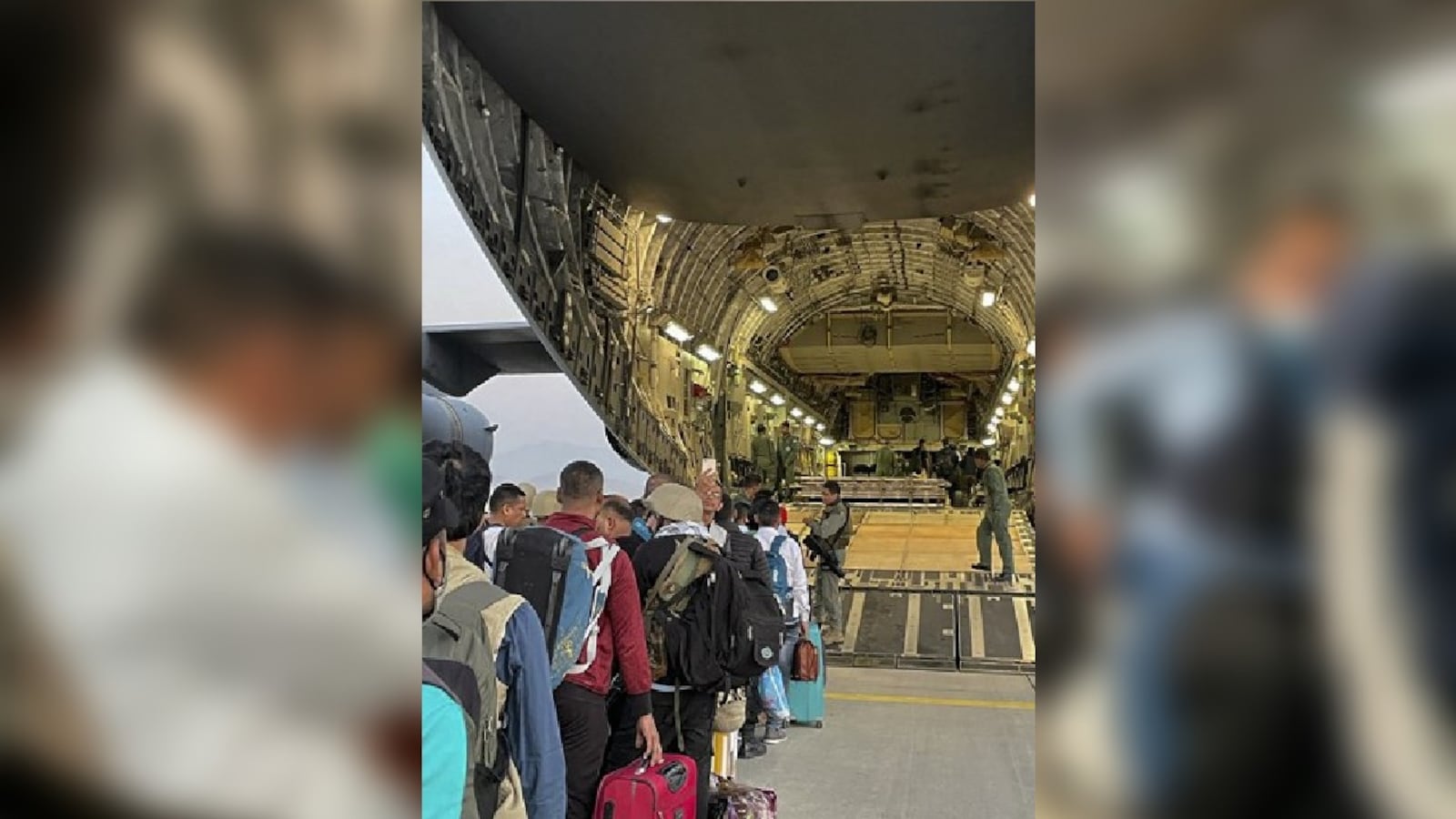Why Afghanistan embassy in New Delhi has ceased its operations? Explained

Why Afghanistan embassy in New Delhi has ceased its operations? Explained
The Afghan embassy in New Delhi has taken the difficult decision to cease its regular operations due to a perceived lack of diplomatic support from the Indian government, starting today. This move reflects the evolving diplomatic landscape and the challenges faced by Afghan diplomatic missions worldwide following the change in Afghanistan’s political landscape.
The decision to suspend regular operations is likely driven by the complex geopolitical situation in the region. The situation in Afghanistan has undergone significant changes in recent times, with the Taliban taking control of the country. This shift has led to uncertainty and adjustments in the diplomatic relationships between Afghanistan and its partner nations, including India.
Despite the closure of its regular operations, the Afghan embassy in New Delhi has committed to maintaining emergency consular services for Afghan nationals residing in or visiting India. This is a crucial step to ensure the welfare and support of Afghan citizens who may require assistance during emergencies or critical situations. These consular services may include assistance with passport issues, legal matters, and other urgent matters that Afghan nationals might encounter while in India.
The continuation of emergency consular services underscores the embassy’s dedication to its citizens and their well-being. It also recognizes the importance of diplomacy and consular support, even in challenging circumstances. Afghan nationals in India can seek assistance and guidance from their embassy in case of emergencies, and this support can be invaluable during times of crisis.
The closure of the regular operations of the Afghan embassy in New Delhi highlights the impact of evolving diplomatic dynamics on the functioning of embassies and consulates worldwide. It is a reminder of the importance of diplomacy in maintaining international relations and providing essential services to citizens, even when faced with challenging circumstances. As the situation continues to evolve, it is advisable for Afghan nationals in India to stay informed about any updates regarding consular services and to reach out to the embassy when needed.

In an official statement issued by the Afghan embassy in India, it has been disclosed that the closure of the embassy’s regular operations is not solely attributed to the lack of diplomatic support from the Indian government but is also underscored by a perceived failure to meet expectations in serving Afghanistan’s interests. This additional factor sheds light on the multifaceted reasons behind this significant decision.
The statement suggests that the embassy had certain expectations regarding its role in advancing Afghanistan’s interests and objectives within India. These expectations may have encompassed a range of diplomatic, economic, and strategic goals. However, it appears that these expectations were not met, which has contributed to the embassy’s decision to suspend its regular operations.
The failure to meet these expectations likely reflects a disconnect or misalignment between the embassy’s objectives and the outcomes achieved in its diplomatic efforts. Diplomatic missions play a vital role in promoting their country’s interests abroad, and when these expectations are not realized, it can lead to reassessment and strategic changes.
It’s important to note that diplomatic relationships are complex, and a variety of factors can influence their success or challenges. These factors can include changes in leadership, shifts in foreign policy priorities, or broader geopolitical developments that impact the dynamics between nations.
The closure of the embassy’s regular operations in India, combined with the perceived failure to meet expectations, underscores the evolving and challenging nature of diplomatic relations in a rapidly changing world. It highlights the importance of continuous dialogue and cooperation between nations to address issues and concerns effectively.
As this situation continues to develop, it will be essential for both Afghanistan and India to engage in diplomatic efforts to address any underlying issues and work towards a constructive relationship that serves the interests of both countries.
India’s stance on the Taliban government in Afghanistan, which took control in August 2021, has been consistent in not recognizing their authority. India chose to evacuate its own diplomatic staff from Kabul well before the U.S. withdrawal from Afghanistan, which occurred two years ago. Consequently, India does not currently maintain a diplomatic presence in Afghanistan.
The Afghan Embassy in New Delhi has been operational with staff appointed by the previous Afghan government led by President Ashraf Ghani. This arrangement has been made possible with the permission and cooperation of Indian authorities. This continued operation of the Afghan Embassy in New Delhi under the previous government’s staff demonstrates India’s support for continuity in diplomatic relations with Afghanistan, despite the change in leadership and the complex geopolitical situation in the region.
India’s non-recognition of the Taliban government aligns with its long-standing foreign policy principles and concerns about the Taliban’s record on issues such as human rights, terrorism, and regional stability. India has historically been a supporter of a stable, democratic, and peaceful Afghanistan and has contributed to various development projects in the country.
The situation underscores the diplomatic complexities that arise when there is a change in government in a foreign country and the challenges faced by nations in determining their stance and actions in such circumstances. India’s decision not to recognize the Taliban government reflects its commitment to certain principles and values in its foreign policy.
The evolving dynamics in Afghanistan will continue to shape India’s approach towards the country, and it remains to be seen how diplomatic relations between the two nations will develop in the future, particularly in light of ongoing geopolitical shifts and regional considerations.
Recent developments indicate that the Afghan diplomatic presence in India has undergone significant changes. As reported, the Afghan ambassador had left India several months ago, and other Afghan diplomats have reportedly departed for third countries, possibly seeking asylum. These departures reflect the uncertain and challenging situation faced by Afghan diplomats in the aftermath of the Taliban’s takeover of Afghanistan in August 2021.
India has maintained a cautious approach toward recognizing the Taliban government, with its stance aligned with the United Nations’ lead in making such a decision. This approach is in line with India’s foreign policy principles, which prioritize stability, democracy, and the protection of human rights. Given the evolving situation in Afghanistan, India’s position on recognizing the Taliban government is a reflection of its concerns regarding the governance and policies of the new leadership.

The statement from the Afghan embassy in India underscores the importance of reaching an agreement with the Indian government to safeguard the interests of Afghans residing in India, including those studying, working, and conducting business there. This is a crucial step to ensure the well-being and rights of Afghan nationals in India, particularly in the absence of a fully functioning Afghan embassy.
As the situation in Afghanistan continues to evolve, diplomatic efforts and agreements between nations will be critical to address the needs and concerns of Afghan citizens both within and outside of Afghanistan. These developments also highlight the complexities of managing diplomatic relations during periods of political change and instability. The cooperation between the Afghan embassy and the Indian government will be essential in providing support and protection for Afghan nationals in India during these uncertain times.
The closure of the Afghan Embassy in New Delhi can be attributed to several key factors, as outlined in their official statements:
- Lack of Support from the Host Government: The Afghan Embassy in New Delhi cited a notable absence of essential support from the Indian government. This lack of support has presented significant challenges, hampering the embassy’s ability to effectively carry out its diplomatic duties and functions. Diplomatic missions rely on cooperation and support from host governments to facilitate their operations and fulfill their roles.
- Failure to Meet Expectations in Serving Afghanistan’s Interests: The embassy acknowledged that it had fallen short of meeting expectations and requirements necessary to serve the best interests of Afghanistan and its citizens. This failure is attributed to multiple factors, including the lack of diplomatic support in India and the absence of a legitimate functioning government in Kabul. Meeting expectations and advancing a nation’s interests abroad are fundamental responsibilities of any diplomatic mission, and when these expectations are not met, it can lead to strategic reassessment and decisions like embassy closure.
These factors highlight the complex diplomatic challenges faced by Afghan diplomatic missions worldwide following the change in government and the Taliban’s takeover of Afghanistan. The closure of the embassy underscores the evolving dynamics and uncertainties surrounding diplomatic relations in the region. It also reflects the impact of geopolitical developments on the functioning of embassies and the ability to effectively serve the interests of the nation and its citizens.
A third crucial reason behind the closure of the Afghan Embassy in New Delhi is the significant reduction in personnel and resources. This reduction in both human resources and material support has been attributed to unforeseen and unfortunate circumstances, which have made it increasingly challenging for the embassy to continue its operations effectively.
Several key points related to this reason include:
- Personnel Reduction: The embassy has faced a notable decrease in the number of personnel available to carry out its duties. This reduction in staff could be due to various factors, including departures of diplomats, staff members, or the inability to replace personnel due to the evolving situation in Afghanistan. A decrease in personnel can strain the embassy’s capacity to function effectively and provide services to Afghan citizens and the host country.
- Resource Constraints: The embassy has also experienced a reduction in material resources necessary for its operations. This could include budget cuts, limitations on supplies and equipment, or constraints on financial resources. Adequate resources are essential for maintaining the infrastructure and capabilities needed for diplomatic missions.

- Lack of Timely Support: The embassy has expressed frustration over the lack of timely and sufficient support in various critical areas of cooperation. This lack of support may encompass a range of issues, including visa renewal for diplomats, which is essential for their legal status in the host country. Delays or obstacles in securing necessary support can impede the embassy’s ability to carry out routine duties and diplomatic functions.




